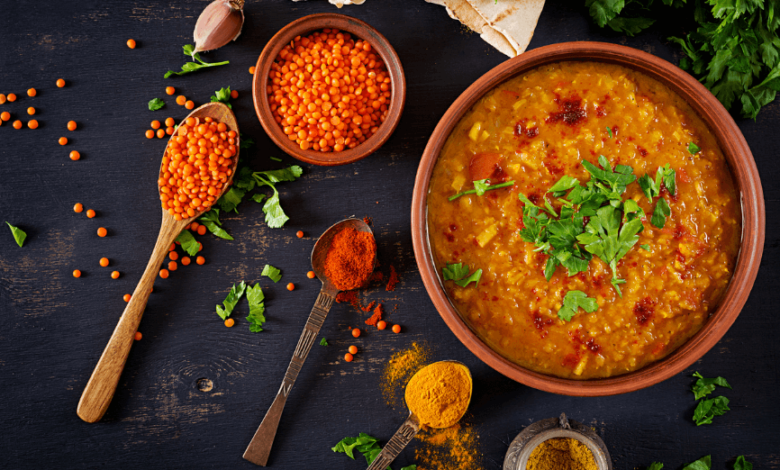Organic vs. Regular Masoor Dal: Is There a Difference in Taste and Nutrition?

The ongoing debate between regular and organic food is yet to be settled. Consumers are questioning the superiority of organic food options. Research suggests that organic farming methods may improve the nutrient profile of crops. However, do these benefits also apply to masoor dal or red lentils?
Understanding the key differences between organic and regular dal can help you finalise your choice of dal for your next masoor dal recipe.
Understanding the Difference Between Organic and Regular Masoor Dal
Understanding the exact comparison between organic and regular masoor dal will help you make an informed decision the next time you are out shopping groceries for cooking.
Organic Masoor Dal:
Organic masoor dal is grown naturally without synthetic pesticides, fertilisers or GMOs. Farmers use compost and crop rotation to keep the soil healthy, which may boost its nutritional value.
Regular Masoor Dal:
Regular masoor dal, on the other hand, is often grown with chemical fertilisers and pesticides to increase yield. While this makes it more affordable and widely available, it can leave behind traces of chemicals.
See also: Mr Pet Cat Food and Taste Of The Wild Dog Food: A Smart Choice for Healthy Pets
Nutritional Differences Between Organic and Regular Masoor Dal
Both regular and organic masoor dal have almost the same macronutrient compositions. They provide plant-based protein, dietary fibre, and complex carbohydrates. Take a look at the other nutrients:
| Nutrients | Organic Masoor Dal | Regular Masoor Dal |
| Protein | ~25g per 100g | ~25g per 100g |
| Carbohydrates | ~60g per 100g | ~60g per 100g |
| Dietary fibre | ~8g per 100g | ~8g per 100g |
| Fats | ~1g per 100g | ~1g per 100g |
| Micronutrients | It may retain slightly higher levels of iron, magnesium, and B vitamins due to better soil quality. | Contains almost the same micronutrients, too. However, potential pesticide residues may impact long-term health. |
| Iron | Slightly higher due to organic soil practices (~7mg per 100g). | ~6mg per 100g, but may have minor pesticide residues. |
| Magnesium | Maybe higher (~50mg per 100g) | ~45mg per 100g |
| B Vitamins | Retains natural levels due to chemical-free farming (~0.6mg B6 per 100g) | Processing may slightly reduce B-vitamin content (~0.5mg B6 per 100g) |
| Antioxidants & Phytochemicals | Organic pulses, including masoor dal, are found to have higher levels of antioxidants, which can provide additional health benefits. | Regular masoor dal may lose some phytochemical content due to conventional farming methods. |
| Presence of Residues | Free from synthetic pesticides and chemicals | It may contain traces of pesticides and chemical residues. |
Taste and Cooking Differences
Your masoor dal recipe will vary as per:
Flavour Profile:
When it comes to flavour in your masoor dal recipe, organic masoor dal is often described as richer, nuttier and earthier due to natural farming. In contrast, regular masoor dal tends to have a milder flavour, influenced by the use of chemical fertilisers.
Texture and Cooking Time:
Cooking-wise: In your masoor dal recipe, organic masoor dal might take a bit longer to soften since it’s less processed. Regular masoor dal often cooks faster but may lose some of its natural texture.
Spice Absorption:
Organic masoor dal tends to soak up flavours effectively, enhancing the depth of dishes. Regular masoor dal, on the other hand, might require more seasoning to achieve the same richness.
Over To You
The debate between organic and regular masoor dal comes down to farming practices, nutrient retention, and the taste you would like in your masoor dal recipe. So the next time you are out shopping groceries, remember that the best choice is the one that fits your lifestyle.
Masoor dal continues to be a timeless ingredient that brings warmth to every meal.



